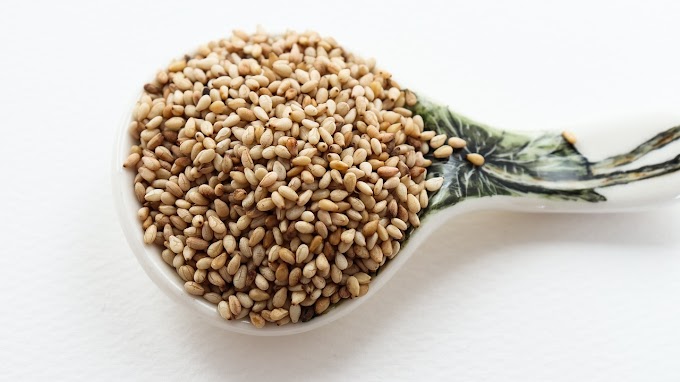Ayurvedic Daily Routine: Achieve Balance and Health
Introduction
In a fast-paced world dominated by technology and stress, the ancient wisdom of Ayurveda offers a holistic approach to well-being. At the core of Ayurveda lies the belief that aligning our daily routines with the natural rhythms of the universe promotes balance and harmony within the body, mind, and spirit. This article explores the Ayurvedic daily routine, known as Dinacharya, unraveling its principles and detailing the transformative impact it can have on our overall health.
Understanding Ayurveda:
Ayurveda, often referred to as the "science of life," is an ancient system of medicine that originated in India over 5,000 years ago. The word "Ayurveda" is derived from Sanskrit, with "Ayur" meaning life and "Veda" meaning knowledge or science. Ayurveda views each individual as a unique combination of the five elements—earth, water, fire, air, and ether—called doshas. These doshas, namely Vata, Pitta, and Kapha, govern various physiological and psychological functions in the body.Dinacharya: The Ayurvedic Daily Routine:
Dinacharya, the Ayurvedic daily routine, is a cornerstone of Ayurvedic lifestyle practices. It is designed to align our activities with the natural rhythms of the day and optimize health and well-being. The routine is tailored to balance the individual doshas, acknowledging that each person has a unique constitution and, therefore, requires a personalized approach to daily living.
Rise with the Sun: Ayurveda places great emphasis on waking up early, ideally before sunrise, during the "Brahma muhurta," or the auspicious time of the day. This period is believed to be particularly conducive to spiritual practices and setting a positive tone for the day.
Oral Care: The Ayurvedic daily routine begins with oral hygiene practices. This includes tongue scraping (Jihwa Prakshalana) to remove toxins that accumulate on the tongue overnight, followed by tooth brushing using natural substances like neem or Ayurvedic tooth powders.
Nasal Cleansing (Nasya): Nasya involves the application of medicated oil or ghee to the nasal passages. This practice is believed to lubricate the nasal passages, improve respiratory health, and enhance mental clarity.
Oil Pulling (Gandusha): Gandusha involves swishing oil in the mouth for a specific duration. This practice is thought to improve oral health, strengthen the jaw, and even contribute to overall detoxification.
Abhyanga: Abhyanga is the practice of self-massage with warm oil. This nurturing ritual is designed to nourish the skin, improve circulation, and calm the nervous system. The choice of oil can be tailored to one's dosha, with sesame oil being commonly used for Vata, coconut oil for Pitta, and mustard oil for Kapha.
Bathing: Following Abhyanga, a warm bath or shower is taken to cleanse the body and further promote relaxation. Herbal soaps or powders, as well as aromatic oils, can be used to enhance the bathing experience.
Yoga and Exercise: Engaging in physical activity is an integral part of the Ayurvedic daily routine. Yoga, with its emphasis on breath and movement, is particularly well-suited for balancing the doshas. However, the choice of exercise should be based on one's constitution and current state of health.
Meditation and Pranayama: Cultivating mental well-being is central to Ayurveda. Meditation and pranayama (breath control exercises) are recommended to calm the mind, reduce stress, and enhance spiritual awareness. These practices can be tailored to the individual's dosha for optimal benefits.
Breakfast: The Ayurvedic approach to nutrition is mindful and considers the qualities of different foods. A nourishing breakfast, based on one's dosha, is recommended. Warm, cooked foods are generally favored over cold or raw options, as they are believed to be easier to digest.
Work and Creative Activities: Mid-morning is considered an optimal time for mental and creative activities. Ayurveda suggests aligning our work and daily tasks with the natural ebb and flow of energy throughout the day.
Lunch: Ayurveda places great importance on the midday meal, considering it the main meal of the day. Lunch should be the most substantial and nutritious, supporting digestion without causing heaviness. Again, the choice of foods should be based on one's dosha.
Afternoon Routine: After lunch, a short walk is recommended to aid digestion. This is followed by a brief period of rest or relaxation, allowing the body to assimilate nutrients and the mind to recharge.
Dinner: Dinner should be a lighter meal than lunch, consumed at least two hours before bedtime. Ayurveda suggests favoring easily digestible foods to avoid overburdening the digestive system during the night.
Evening Rituals: The evening is a time for winding down and preparing for rest. This includes calming activities such as gentle stretching, reading, or spending quality time with loved ones. Avoiding stimulating activities and electronic devices is advised to promote a night of restful sleep.
Bedtime: Ayurveda recommends going to bed early, ideally by 10:00 PM, to align with the natural circadian rhythms. A good night's sleep is considered crucial for overall well-being, and creating a peaceful bedtime routine helps signal to the body that it's time to rest.
Conclusion:
In a world characterized by constant change and demands, the Ayurvedic daily routine offers a timeless guide to nurturing our physical, mental, and spiritual health. Dinacharya is a holistic approach that extends beyond individual practices to encompass a way of life that is in harmony with the natural world. By incorporating these time-tested principles into our daily lives, we can tap into the profound wisdom of Ayurveda and embark on a journey towards greater well-being and balance. Whether you are new to Ayurveda or seeking to deepen your existing practices, embracing the Ayurvedic daily routine can be a transformative step towards a more vibrant and harmonious life.FAQ's
What is Dinacharya, and why is it important in Ayurveda? Dinacharya is the Ayurvedic daily routine that aligns our activities with the natural rhythms of the day. It is essential in Ayurveda as it helps maintain balance within the body, mind, and spirit, promoting overall health and well-being.How can I determine my dosha and tailor my routine accordingly?
Consulting with an Ayurvedic practitioner can help identify your dosha. They can provide personalized recommendations for your daily routine, including diet, exercise, and self-care practices.
Is it necessary to wake up before sunrise for the Ayurvedic routine?
Is it necessary to wake up before sunrise for the Ayurvedic routine?
While waking up before sunrise is ideal in Ayurveda, the emphasis is on aligning with the natural cycles. Adjustments can be made based on individual schedules, but efforts should be made to rise early for the best results.
Can anyone practice Ayurvedic daily routines, or is it specific to certain individuals?
Can anyone practice Ayurvedic daily routines, or is it specific to certain individuals?
Ayurvedic daily routines are adaptable and can benefit individuals of all ages and constitutions. However, personalized adjustments may be recommended based on one's dosha and specific health conditions.
How long does the Ayurvedic daily routine take, and is it feasible for busy lifestyles?
How long does the Ayurvedic daily routine take, and is it feasible for busy lifestyles?
The length of the Ayurvedic daily routine can vary based on personal preferences and time constraints. Even incorporating a few key practices can make a significant difference. It's about cultivating mindful habits rather than adhering strictly to a fixed timeline.
Can I practice Ayurvedic routines if I need to become more familiar with yoga or meditation?
Can I practice Ayurvedic routines if I need to become more familiar with yoga or meditation?
Yes, Ayurvedic routines can be adapted to individual preferences. While yoga and meditation are recommended, other activities that promote relaxation and stress reduction can be substituted.
Are there specific foods recommended for each dosha in the Ayurvedic daily routine?
Are there specific foods recommended for each dosha in the Ayurvedic daily routine?
Yes, Ayurveda suggests tailoring your diet based on your dosha. Vata individuals may benefit from warm, nourishing foods, Pitta from cooling and soothing options, and Kapha from light and easily digestible
How can Ayurvedic routines help with common health issues like stress and insomnia?
How can Ayurvedic routines help with common health issues like stress and insomnia?
Ayurvedic routines address the root causes of health issues by promoting balance. Practices such as meditation, herbal remedies, and a consistent daily routine can help manage stress and improve sleep patterns.
Can Ayurvedic daily routines be combined with modern medicine?
Can Ayurvedic daily routines be combined with modern medicine?
Ayurveda can complement modern medicine, but it's essential to consult with healthcare professionals for an integrated approach. Inform your healthcare provider about any Ayurvedic practices you plan to adopt, especially if you are undergoing specific treatments.
Is the Ayurvedic daily routine a one-size-fits-all approach?
Is the Ayurvedic daily routine a one-size-fits-all approach?
No, Ayurvedic daily routines are personalized based on individual constitutions and health conditions. While there are general guidelines, the practices can be adapted to suit the unique needs of each person.
Incorporating the Ayurvedic daily routine into your life is a gradual process, and it's recommended to make changes mindfully, considering your own pace and preferences. If you have specific health concerns or conditions, it's advisable to seek guidance from qualified Ayurvedic practitioners for a tailored approach.
Incorporating the Ayurvedic daily routine into your life is a gradual process, and it's recommended to make changes mindfully, considering your own pace and preferences. If you have specific health concerns or conditions, it's advisable to seek guidance from qualified Ayurvedic practitioners for a tailored approach.








